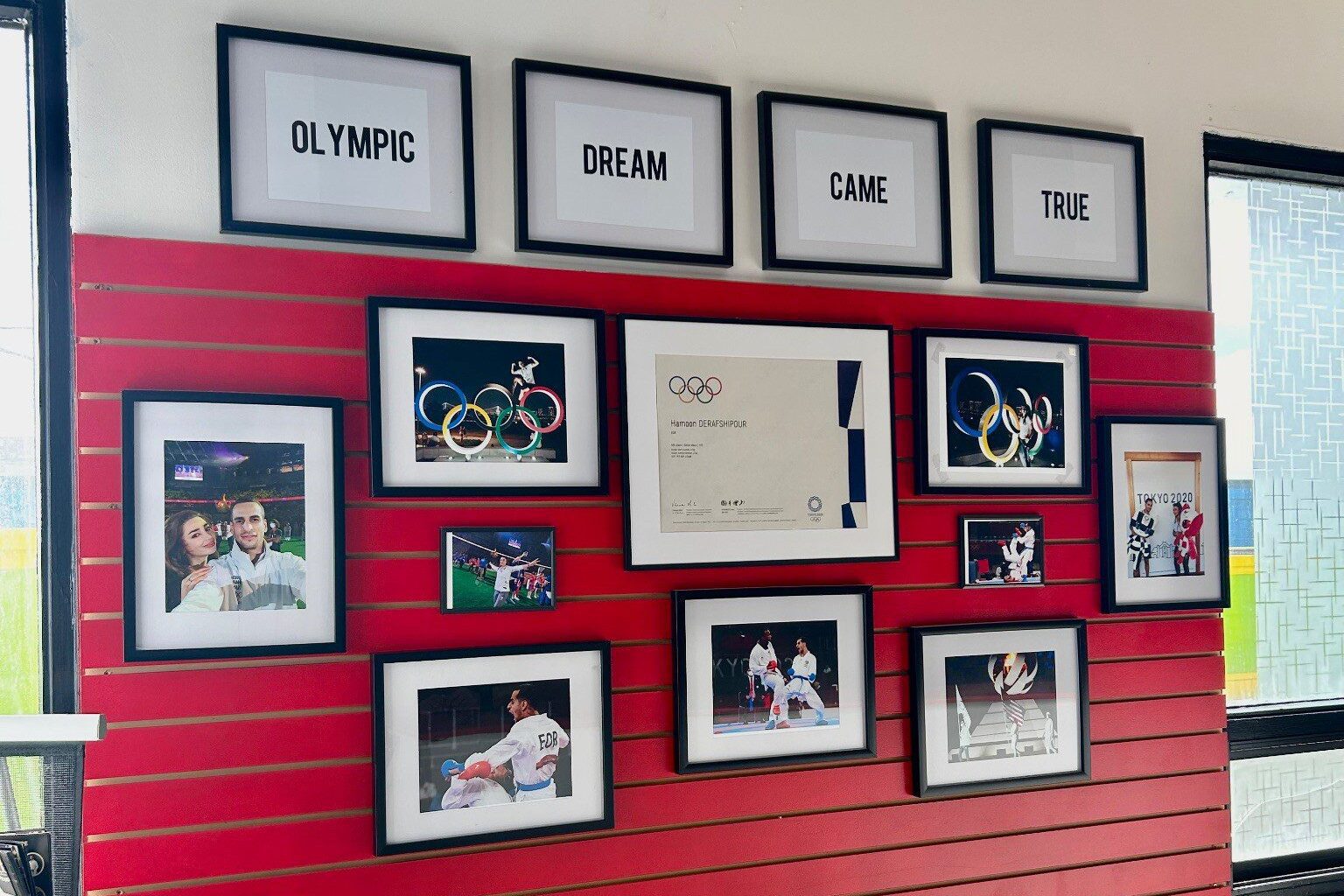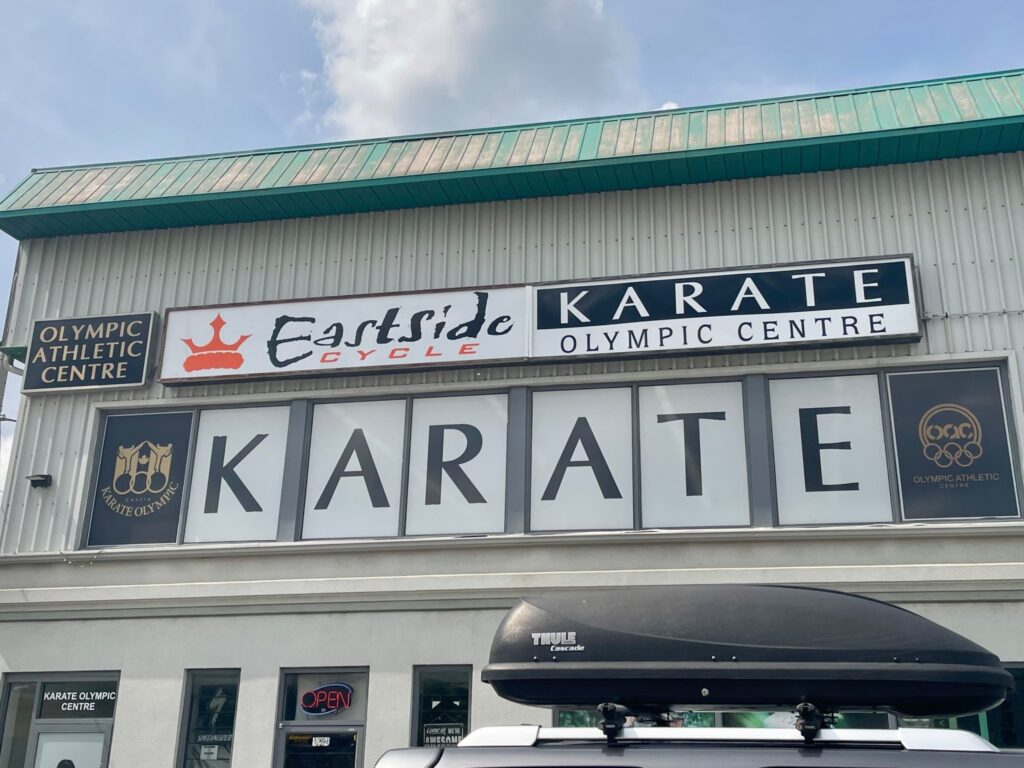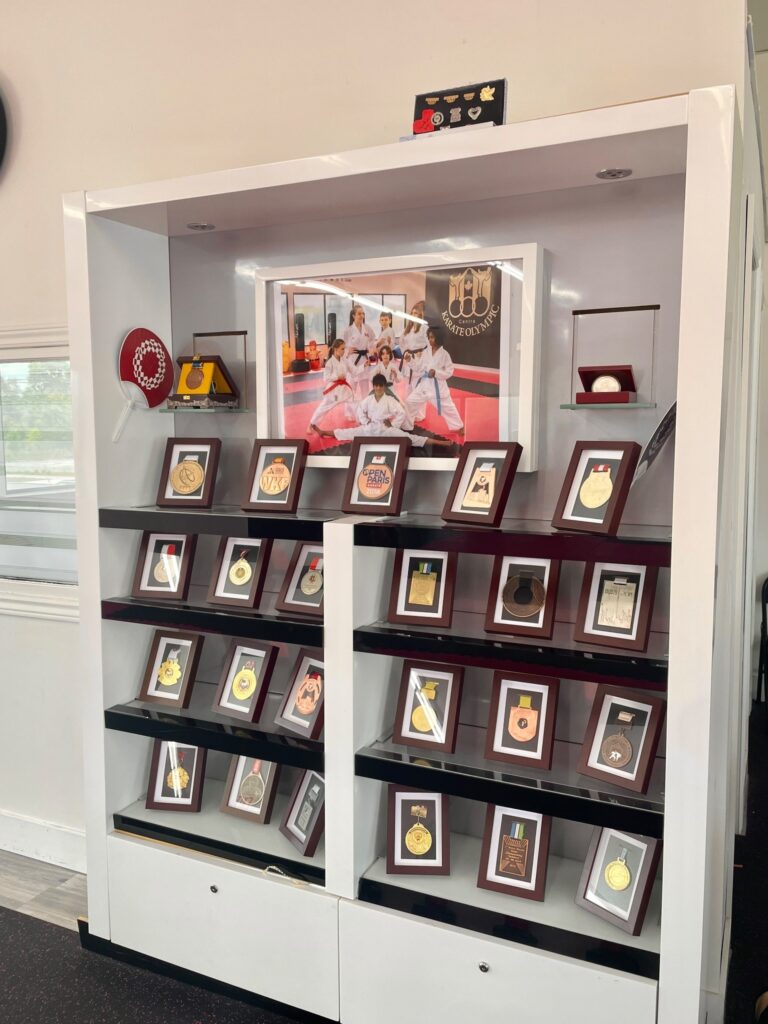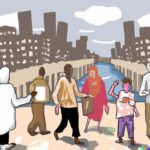Themes: Olympic Refugee Team, Social Integration, Youth, Refugees, Sport, Karate
Authors: Darina Muñoz, Yunqi Meng

Have you ever considered that the number 80 might contain endless potential? It’s not just because the figure ‘8’ resembles the infinity symbol—it also represents infinite possibilities in the context of refugees and athletics. It symbolizes the unwavering resilience and hope of millions of refugees across the globe, through two specific achievements: the 80 refugee Olympic athletes who have competed since 2016, and the 80 karate athletes in Olympic history. These milestones show that with the right support from individuals, organizations, and governments, dreams can indeed come true.

Athletic potential knows no age—whether it’s children, youth, seniors, or adults, anyone can excel in sports. Yet, while our newsfeeds are often filled with inspiring stories of elite competitors and major leagues, how often do we hear about young refugee athletes? Are they receiving the same level of support? Can they grow up believing that their dreams are within reach? These questions can be answered through the experience of Hamoon Derafshipour, a Tokyo 2020 Olympic athlete who left everything behind in Iran as a refugee. In Canada, he found not only a life-changing opportunity to chase his Olympic dream, but also a platform to inspire refugee youth to believe that the impossible can be achieved.

“You work hard and you expect it to pay off. But sometimes, you are not able to participate,” said Hamoon, the 31-year-old karate Olympian, when asked how Canadian organizations and individuals are supporting refugee athletes. Through his Karate Olympic Centre in Kitchener, Ontario, he has been working to reduce barriers for young refugees, many of whom have qualified to be part of Team Canada. However, he explains that due to citizenship status and other restrictions, they are unable to compete in tournaments.
“Those kids need more motivation than the seniors. When they come here and train with other kids, they have a lot of energy. But when they leave, they need to face the stress of being a newcomer and a refugee at the same time, said Hamoon. “This sport has pushed them to survive. To continue to try and compete for their goal. It changes their behaviour through discipline, respect, and confidence.”
Hamoon

When asked what Canadian cities can do to better support their dreams, Hamoon responded: “For the seniors, if their level is good enough to reach international tournaments, they can apply for scholarships. But for young refugees there’s nothing, so we need new programs.” His concern is that young refugee athletes should have the same opportunities to compete as seniors. For years, he has tried to promote his programs through Canadian organizations, but several have not responded. Despite these challenges, he remains proud of the nine young national karate students at his Olympic Centre. “One of my athletes is ranked number one in the world. She is going to the World Championships in October,” said Hamoon. “I am very connected with my athletes and I’m always training with them. I think it’s a major motivation, especially for the refugees. They are looking at me, and they want to do the same. I’m doing this for them.”
Unfortunately, much like refugee athletes, karate has faced its own challenges. Despite being staged for the first and last time at Tokyo 2020, Hamoon believes the sport deserves a permanent place in the Olympics. “Whenever I think of karate, I know it deserves to be in the Olympics. If you look around the world, for every 10 people, at least a couple of them did karate as children,” he remarked.

With an impressive 5th place finish in karate at the 2020 Olympics, Hamoon shared that his ultimate goal is to also have one of his refugee students compete in the Olympics: “I want to make it happen at the Youth Olympics in Dakar, Senegal in 2026.” He also noted that he sees a lot of potential in his students—especially Mariana Guerrero, the 14-year-old 2022-2023 Pan American Champion and current top rank worldwide, who recently won bronze in a youth competition in Mexico. He is confident that, at some point, she will have the opportunity to join Team Canada.
Looking ahead, Hamoon hopes to continue pursuing his Olympic dream—this time, as a coach. “One day I will be retired, I know that,” said Hamoon. “It’s hard for athletes to retire, but I accept it, and I want to continue competing alongside my athletes as their coach.” As the interview drew to a close, Hamoon expressed heartfelt gratitude to the International Olympic Committee for consistently supporting refugee athletes. He also called on individuals, organizations, and governments to create more pathways for young refugees to pursue their ambitions—whether in sports or beyond. Together, we can help ensure they have a real chance to reach their full potential.
We thank Hamoon Derafshipour for taking the time to speak with us and for inspiring others by sharing his story.


